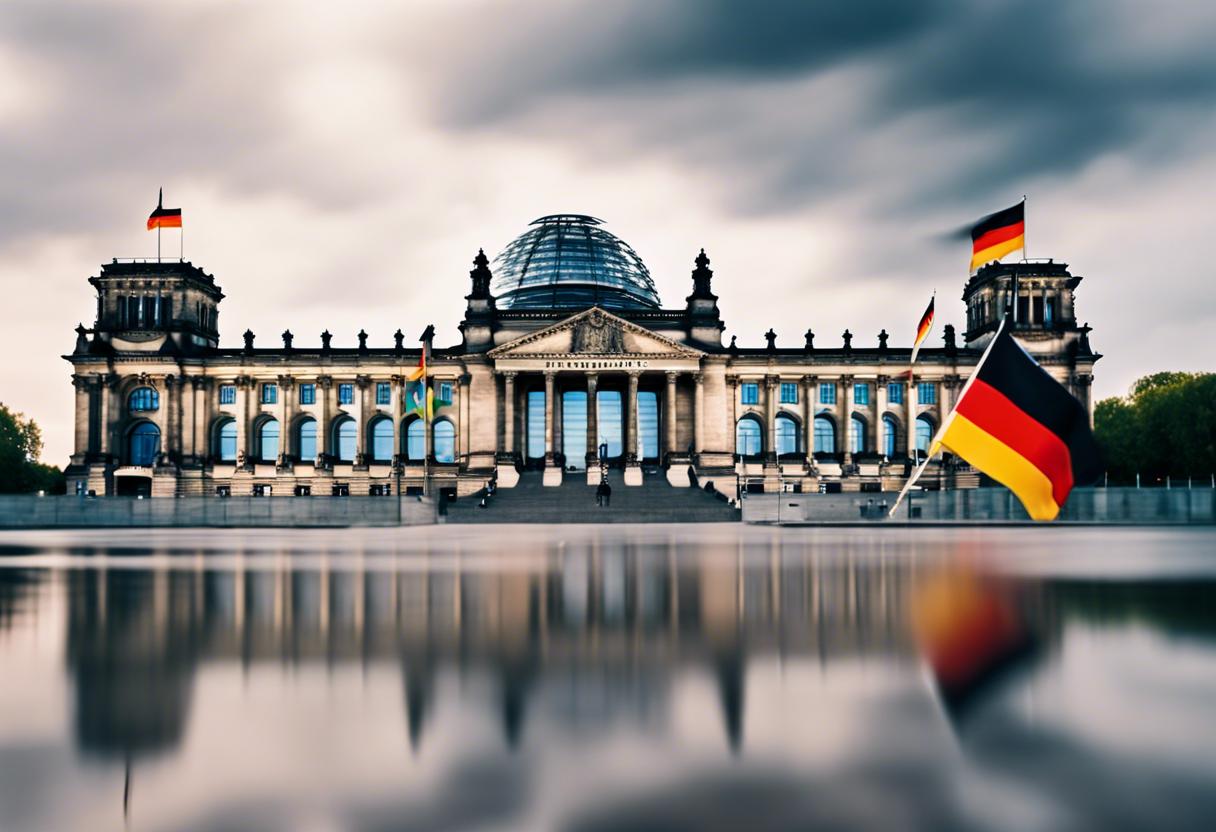Olaf Scholz, the Chancellor of Germany, held an urgent gathering with his allied partners on Wednesday after a leadership shakeup within the Green Party sparked whispers of an untimely election. The leadership’s departure happened merely three days following the eviction of the Greens, alongside the Free Democratic Party (FDP), from the Brandenburg state parliament situated in Potsdam, following a lacklustre polling performance of just 4% and 0.83% respectively.
The Greens have been experiencing a challenging period marked by poor state and EU election performances. This was highlighted by the party’s co-leader, Omid Nouripour, who described the situation following the fallout in Brandenburg as “the most severe crisis faced by our party in the last ten years”.
The party’s reputation is faltering, trailing six points behind its performance in 2021. This is primarily due to shifting attention from the party’s central climate change initiatives towards issues related to migration and the Ukraine war impacts.
Ricarda Lang, the party’s co-leader, suggested that a leadership change, set to occur at November’s party conference, might provide a foundation for a Green Party makeover before the next federal election, set for September 2025. Describing the forthcoming election’s importance, she emphasised that it would dictate Germany’s future trajectory and identity.
Lang’s statement emanates from the unexpected rise in support for the far-right party, Alternative for Germany (AfD), which presently secures around 20% in nationwide polls and consistently above 30% in three sequential state elections. This is due to mounting frustrations concerning irregular migration and linked security issues.
Previously this month, Nouripour expressed that ongoing internal disputes were not beneficial for the incumbent coalition, which he labelled as a ‘transitory’ administration.
The resignations within the Greens has now shifted focus to Germany’s secondary minor coalition partner, the liberal FDP. The Sunday’s Brandenburg election results represented a new nadir even by the party’s historical poor performance standards. The final tally showed that the FDP secured just 12,462 out of 1.5 million votes, marginally more than the number of spoiled votes, and less than half of the support received by Germany’s Animal Welfare party.
The FDP, led by Christian Lindner, Federal Finance Minister, is on the brink of political oblivion with a mere 3.5 per cent support in national polls; significantly less than the required 5 per cent needed for representation in the Bundestag. There is a divide within the party, with some advocating for an early end to the traffic-light coalition in Berlin. However, others dread this might accelerate their downfall, as Germans tend to dislike parties instigating premature elections traditionally.
It is suspected by allies of the FDP’s coalition that the party might seek an early exit by choosing to dispute on multiple contentious issues such as an unstable federal budget, escalating social spending, and divergent migration strategies.
After the chancellery meeting on Wednesday meant to deliberate on the nearly €10 billion that Berlin earmarked for a currently postponed Intel plant, the spokesperson for Scholz declared that the resignation of the Greens would not affect the coalition in any way.
Nevertheless, doubts persist about whether the chancellor can steer the coalition’s future. Numerous people in Berlin blame the problems of the FDP on Lindner, charging him with constricting a previously board liberal party into a neoliberal advocacy group for affluent western Germans.
“Exiting the coalition could amount to slow self-destruction, but the FDP representatives might be so exhausted that they’re incapable of productive politics,” commented Prof Klaus Schubert of Münster University’s political science department. “Politics is about striking a compromise, but that doesn’t work for the FDP who now seem to be out of options.”
On Wednesday evening, expectations of an impromptu election floated around as the Christian Democratic Union (CDU) – the central-right opposition – assembled to celebrate the 70th birthday of Angela Merkel, the former leader. Thorsten Frei, CDU Bundestag floor leader, observed that the coalition was visibly disintegrating.

